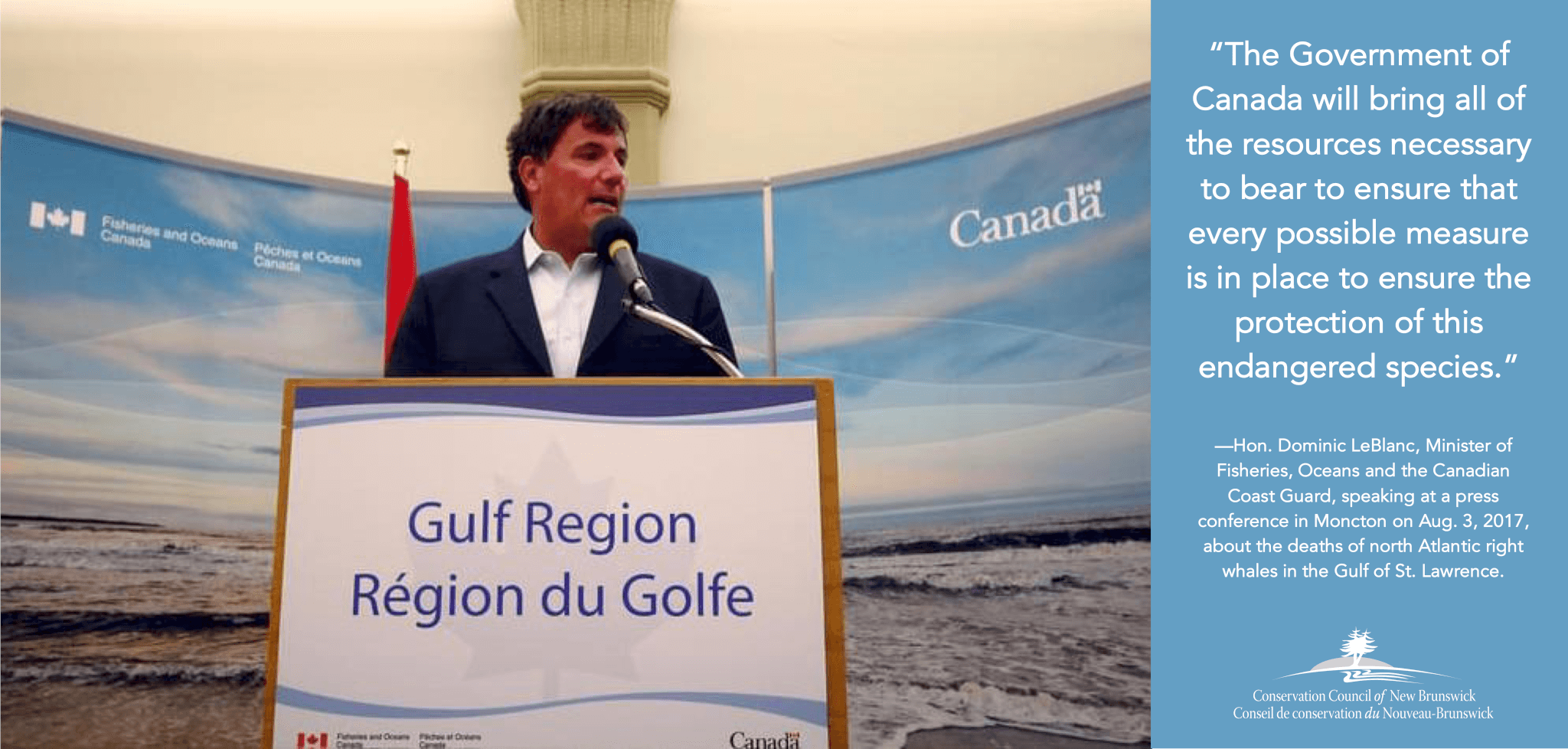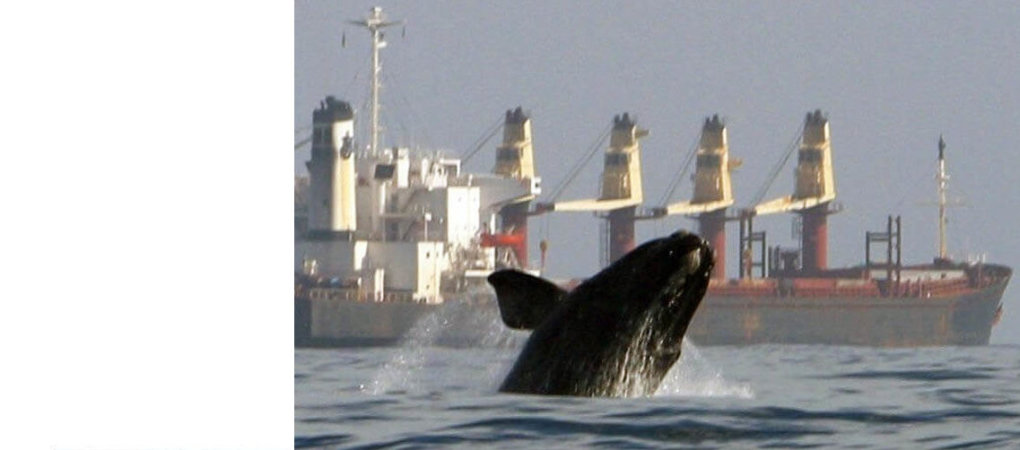 The devastating year for right whales continues. Another north Atlantic right whale has been found dead and decomposing off the coast of Massachusetts this week, reports the International Fund for Animal Welfare (IFAW), making it the 16th dead North Atlantic right whale found in U.S and Canadian waters this year.
The devastating year for right whales continues. Another north Atlantic right whale has been found dead and decomposing off the coast of Massachusetts this week, reports the International Fund for Animal Welfare (IFAW), making it the 16th dead North Atlantic right whale found in U.S and Canadian waters this year.
Having lost more than 3 per cent of the roughly 500 remaining endangered right whales in a matter of months, whale researchers attending the North Atlantic Right Whale Consortium’s annual meeting in Halifax last weekend stressed that human activity is the primary cause of death for right whales.
If the situation doesn’t improve, they estimate the species will go extinct within the next 20 years.
“I really do think we only have a few years to make a difference here. The longer we wait, the harder this problem becomes for us to solve,” marine ecologist Mark Baumgartner from Woods Hole Oceanographic Institution told the CBC on Oct. 23.
“The sense of urgency for me is finding out that the population that’s with us today, a lot of the breeding females may be gone in two decades. And that’s a really short period of time for us to do something about this.”
Following such a bleak prediction from the scientific community, the recovery and protection of the shrinking but iconic right whale population will be the focus of a meeting being held in Moncton on Nov. 9 where Fisheries Minister Dominic LeBlanc, scientists, fishermen, large-vessel operators and Indigenous groups will collaborate on solutions to reduce the number of right whales washing up on shorelines.
How can you help the north Atlantic right whale?
 Join us in writing the Hon. Dominic LeBlanc, Minister of Fisheries, Oceans and the Canadian Coast Guard, to say thank you for the actions his department has already taken, and ask the minister to keep going strong in his pledge to protect and restore this critically-endangered species. We’ve made it easy for you and have already written an email that you can add to or simply sign and send. Click here to do it now.
Join us in writing the Hon. Dominic LeBlanc, Minister of Fisheries, Oceans and the Canadian Coast Guard, to say thank you for the actions his department has already taken, and ask the minister to keep going strong in his pledge to protect and restore this critically-endangered species. We’ve made it easy for you and have already written an email that you can add to or simply sign and send. Click here to do it now.
Recommended links:
- Canada, U.S. launch investigation into right whale deaths
- How can you help the right whale?
- Update: Feds order tankers to slow down in Gulf of St. Lawrence
- Baykeeper calls for mandatory slow down of supertankers
- Eighth right whale death sparks call for “complete review” of shipping lanes
- Seven dead right whales devastating blow: experts
- Conservation Council, Fundy Baykeeper deeply saddened by loss of whale rescuer and veteran fisher
- What’s happening to the right whale?

